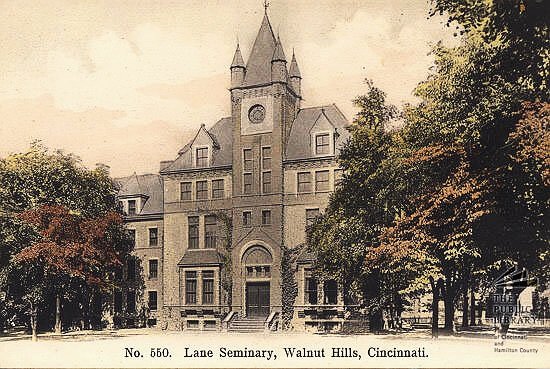Current Projects
Lane Seminary and McCormick Seminary each began in 1829. Lane began as a “New School” Presbyterian institution in a predominantly “Old School” Cincinnati. While Cyrus McCormick’s offer the relocate the Old School seminary at New Albany, Indiana was intended to lodge an Old School defender of Princeton Orthodoxy in the predominantly New School city of Chicago. At Lane, the prospects of this school serving anti-slavery advocacy attracted Theodore Dwight Weld, who himself drew three or four dozen like-minded students. The 1834 debates on slavery led to the departure of immediatist Weld and his allies. These “Lane Rebels” continued their agitation and advocacy at other schools, congregations, and anti-slavery organizations. In the 1850s, McCormick blocked anti-slavery faculty appointments, and ensured a conservative trajectory for the school that would last well into the 20th century. McCormick and Lane affiliated in the 1930s, and so blend the legacies of the nineteenth century in its conscience and its compromises. As the bicentennial of both schools approaches, I am gathering materials.
Niebuhr After Cone: Insights of the Cross and the Lynching Tree: A study of the reception of Cone’s Cross and the Lynching Tree (2011), with special attention to the problematic use of this important and insightful book in the discussions following the screening of Martin Doblmeier’s 2017 documentary, “An American Conscience: The Reinhold Niebuhr Story.”
Biography of John Timothy Stone: Stone was a remarkable American religious leader, and McCormick Seminary’s president from 1928-1940. A national figure in evangelism, an international figure in missions, a civic leader at Fourth Presbyterian Church in Chicago, and at McCormick Seminary.
Reparations and McCormick Theological Seminary: An ongoing project to present a realistic appraisal of Cyrus McCormick, his personal, political, and financial affiliations before and after the American Civil War, and the legacy of McCormick Seminary and all institutions with roots in the antebellum economy.

